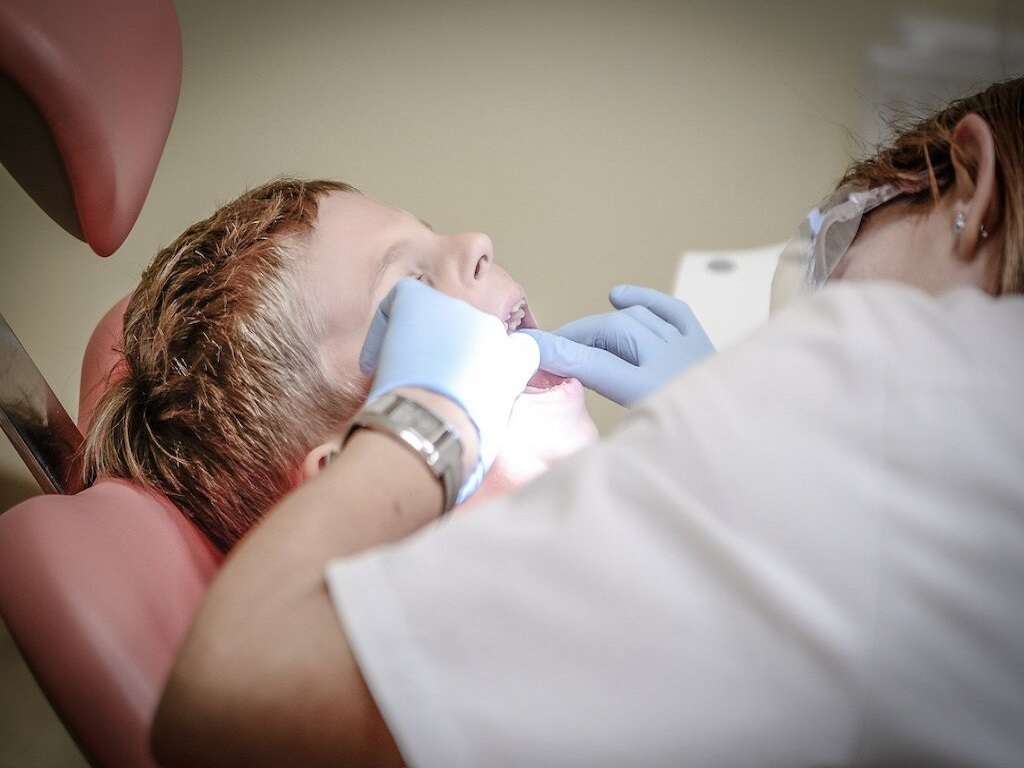10 Laryngitis Symptoms
 Article Sources
Article Sources
- 1. 'Laryngitis.' Johns Hopkins Medicine, www.hopkinsmedicine.org/health/conditions-and-diseases/laryngitis
- 2. 'Laryngitis.' Healthdirect, Healthdirect Australia, www.healthdirect.gov.au/laryngitis
- 3. 'Laryngitis Diagnosis and Treatment.' Mayo Clinic, Mayo Foundation for Medical Education and Research, 24 July 2020, www.mayoclinic.org/diseases-conditions/laryngitis/diagnosis-treatment/drc-20374267
- 4. 'Laryngitis.' Mayo Clinic, Mayo Foundation for Medical Education and Research, 24 July 2020, www.mayoclinic.org/diseases-conditions/laryngitis/symptoms-causes/syc-20374262
- 5. 'Fever.' MedlinePlus, U.S. National Library of Medicine, 13 Apr. 2021, medlineplus.gov/fever.html
- 6. 'Laryngitis: MedlinePlus Medical Encyclopedia.' MedlinePlus, U.S. National Library of Medicine, medlineplus.gov/ency/article/001385.htm
- 7. 'Swollen Lymph Nodes.' Mayo Clinic, Mayo Foundation for Medical Education and Research, 9 Oct. 2019, www.mayoclinic.org/diseases-conditions/swollen-lymph-nodes/symptoms-causes/syc-20353902
Laryngitis is an inflammation of the vocal cords commonly caused by another illness. A cold, flu, pharyngitis and other upper respiratory infections can cause laryngitis to form. Sometimes, laryngitis develops as a primary condition due to irritation in the throat from other causes. Smoking, acid reflux, inhaled medications and inhaled irritations could be to blame.1‘Laryngitis.’ Johns Hopkins Medicine, www.hopkinsmedicine.org/health/conditions-and-diseases/laryngitis
Although uncomfortable, laryngitis isn't usually cause for alarm in adults. It can be more concerning in children, however. Some children find eating or breathing difficulty with swollen vocal cords. On the rare chance breathing difficulties occur, it's always best to seek immediate medical attention.
Hoarseness
Hoarseness is commonly seen as the trademark symptom of laryngitis. It may be described as someone losing their voice or sounding croaky. With laryngitis, hoarseness or difficulty speaking may get worse each day or be worse upon waking.
The tell-tale hoarseness in laryngitis is caused by a combination of inflammation and irritation. The vocal cords swell in laryngitis, causing them to become strained. Once strained, vocal cords cannot make sounds like usual. With laryngitis often being a secondary symptom, irritation in the throat from coughing or sneezing is also common.2‘Laryngitis.’ Healthdirect, Healthdirect Australia, www.healthdirect.gov.au/laryngitis

Voice Loss
Voice loss commonly happens after a few days of hoarseness. However, voice loss can sometimes happen without hoarseness. For example, if laryngitis is caused by serious overstraining of the vocal cords.
A complete inability to speak doesn't have to occur for a symptom to be considered voice loss. Some people may find they can whisper. Doctors suggest managing voice loss or hoarseness by not speaking unless necessary, so the vocal cords have a chance to heal properly.3‘Laryngitis Diagnosis and Treatment.’ Mayo Clinic, Mayo Foundation for Medical Education and Research, 24 July 2020, www.mayoclinic.org/diseases-conditions/laryngitis/diagnosis-treatment/drc-20374267

Tickling Sensation in the Throat
People who have had a cold or allergies should be familiar with the tickling sensation in the throat. This tickling may feel like itching or like something is in the throat. People often cough, sneeze or feel the need to clear their throat after this sensation begins.
A tickle in the throat is often caused by drainage, which may happen as the body begins to heal the swelling that accompanies laryngitis. It may also be a symptom of general irritation.

Sore Throat
A sore throat is common in laryngitis because the inflammation of the vocal cords can be uncomfortable. The vocal cords are found in the larynx.4‘Laryngitis.’ Mayo Clinic, Mayo Foundation for Medical Education and Research, 24 July 2020, www.mayoclinic.org/diseases-conditions/laryngitis/symptoms-causes/syc-20374262 When vocal cords become swollen, they can cause throat pain that may feel sore, achy or generally uncomfortable.
A sore throat may also accompany laryngitis because of a primary or comorbid viral infection. Laryngitis often appears after or alongside other viral infections that may produce symptoms like sore throat, coughing, sneezing or nasal congestion.

Dry Cough
Laryngitis may produce a dry cough. Dry coughs aren't productive, meaning they don't bring up any mucus or phlegm. A dry cough is a common bodily reaction to the inflammation in your throat. This cough may happen alongside a tickling or itching sensation.
A dry cough can make sore throats and inflammation in laryngitis worse because it's irritating. Over-the-counter or prescription medications can help manage coughing so the vocal cords have time to heal.

Low-Grade Fever
Laryngitis on its own rarely causes high fevers, but it could cause a low-grade fever similar to what a cold may produce. Laryngitis symptoms that coincide with a high fever may signal another, more serious infection in the body.
Viral and bacterial infections trigger an immune system response that increases internal body temperatures, sometimes. This increase in temperature is meant to make the body uninhabitable for the viruses or bacteria making a person sick.5‘Fever.’ MedlinePlus, U.S. National Library of Medicine, 13 Apr. 2021, medlineplus.gov/fever.html

Pain When Swallowing
Swelling in the vocal cords in laryngitis may cause pain when swallowing. This is due to the act of swallowing, which places pressure on the swollen sections of your throat.
It's important to note, however, that it shouldn't be impossible to swallow nor should it be difficult to breathe. Patients should seek immediate medical attention if they notice an inability to swallow or difficulty breathing. These concerning symptoms are most likely to appear in children with laryngitis.6‘Laryngitis: MedlinePlus Medical Encyclopedia.’ MedlinePlus, U.S. National Library of Medicine, medlineplus.gov/ency/article/001385.htm

Swollen Glands
Swollen glands, also known as lymph nodes, are a common reaction to viruses, bacteria and other illnesses in the body. The lymph nodes are an essential part of the body's immune system. Their job is to work as filters that trap bacteria or viruses before they can infect the rest of the body.7‘Swollen Lymph Nodes.’ Mayo Clinic, Mayo Foundation for Medical Education and Research, 9 Oct. 2019, www.mayoclinic.org/diseases-conditions/swollen-lymph-nodes/symptoms-causes/syc-20353902
In laryngitis, the neck lymph nodes are most commonly affected. Lymph nodes also exist in the armpits, groin and under the chin.

Runny or Stuffy Nose
Laryngitis itself doesn't cause a runny or stuffy nose. Nasal congestion is commonly associated with the primary infections that may lead to swelling in the vocal cords. For this reason, some people may experience a runny nose alongside other symptoms of laryngitis.
Primary infections that could cause nasal congestion include a cold, the flu and similar upper respiratory infections. Environmental allergies to pollen, dander or dust may also be to blame.

Feeling Generally Unwell
One of the first symptoms some people experience with many mild infections is feeling generally unwell or run down. This feeling may appear days before other symptoms in some people, indicating they may be coming down with something. Others may have no indication of illness prior to other symptoms.
Feeling generally out of sorts is likely to persist throughout the duration of laryngitis. In some, the feeling may continue for some time after other symptoms disappear.










